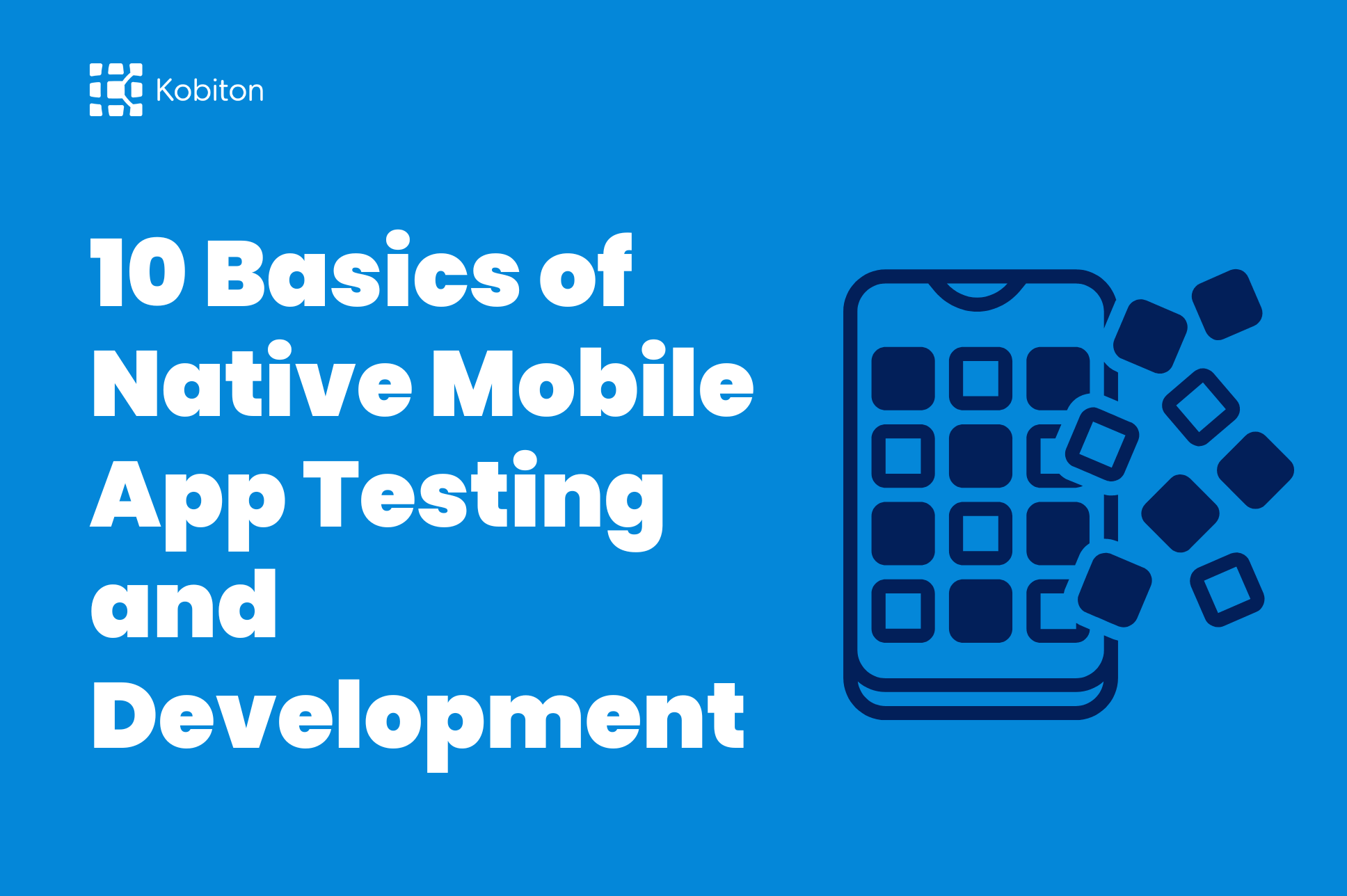
10 Basics of Native Mobile App Testing and Development

Cara Suarez
Appium is a popular open-source framework used for automating mobile app testing. It supports testing of native, hybrid, and web applications across iOS and Android platforms.
The Appium framework elevates mobile testing, and it is a versatile tool. Let us learn more.

Appium leverages its architecture as an HTTP server, written on the Node.js platform and utilizing the WebDriver JSON wire protocol to drive iOS and Android sessions. It provides a versatile and efficient platform for mobile app testing across different devices and platforms.
REST API completes actions such as:
Let’s consider it this way: Appium enables automation in a session context. After a client initiates a session with Java, JavaScript, PHP, Ruby, Python, or C#), Appium sends the server a POST /session request, using a JSON object.
At that point, the server begins an automation session. Ultimately, it will respond with a unique session ID to deliver additional commands, depending upon the session in question.
Many features make Appium a powerful and versatile open-source automation testing framework for mobile applications as part of traditional mobile app testing. Below are some of its most notable features.
First, Appium allows for the writing of tests against multiple platforms (including both iOS and Android), using the same API to do so. This enables code reuse between test suites for iOS and Android — a big plus.
Second – unlike some other testing tools – Appium does not require any modification to the app’s code, nor does it call for the inclusion of any additional agents inside the app to function. Ease of use is a big plus, which is a big component of Appium’s popularity.
Appium uses the WebDriver protocol, and it can support test scripts written in any WebDriver-compatible language like Java, Python, JavaScript (Node.js), PHP, Ruby, and C#.
Appium allows automation testing for native, hybrid, and web applications, supporting automation tests on physical devices, emulators, or simulators.
Another big benefit of Appium is its ease of integration with other powerful tools, like Selenium and Jenkins.
While Selenium is tailored for web applications – and Appium is tailored for mobile apps – their overlap in WebDriver protocol and programming languages makes them a powerful duo for comprehensive testing strategies covering both web and mobile platforms.
Appium can also be integrated into Jenkins pipelines to automate the execution of mobile tests as part of the build process. Jenkins can trigger Appium tests, report results, and even manage test devices, making it a powerful tool for CI/CD pipelines.
There are, however, a few small (but common) issues implementing Appium. They are worth noting, and important to anticipate.
Some users find setting up Appium to be time-consuming, especially when configuring it to work with different devices and operating systems. The initial setup, including installations and configurations, can be complex.
While Appium supports a wide range of gestures, certain complex gestures might not be directly supported or may work inconsistently across different platforms.
Appium is designed to combat this problem by supporting multiple programming languages and offering cross-platform testing with a single API for both Android and iOS platforms.
Appium sessions can also consume a significant amount of memory, especially when running multiple instances or tests concurrently.
Fortunately, there are a number of techniques that users can implement to get the most of Appium testing. I’ll share a few here — but would also like to remind readers that Kobiton professionals are standing by to help, with additional tips and tricks (not covered here) which we’ve gained during our years of experience helping companies just like yours.
Appium Inspector is a valuable tool that allows engineers to identify and interact with mobile app elements, simplifying the testing process.
Choose the scripting language that aligns with your team’s expertise and project requirements to ensure efficient test script development.
Explore and utilize advanced features of Appium such as handling notifications, deep linking, and using mobile device gestures.
Data-driven testing separates test data from test scripts, enabling the execution of the same test script with different input data.
Every testing scenario is different, and there are some situations where Appium use cases have proven to be especially beneficial. Here, I will highlight just a few of those scenarios.

Appium is widely used for mobile app testing on both Android and iOS platforms. It allows for automation testing of native, hybrid, and web applications, supporting test automation on physical devices, emulators, or simulators.
Appium can be utilized for mobile game testing, ensuring the quality and performance of mobile games on different devices and platforms.
Appium can be helpful for accessibility testing, ensuring that mobile applications are accessible to users with disabilities. It allows for testing the accessibility features of mobile apps to comply with accessibility standards and regulations.
It is no secret that Appium is a popular tool for software development testing. Not only is it powerful and efficient, but it is also easy to use and become acclimated to. I invite you to explore Appium further, to enhance your own mobile app quality.
Next steps: Experience uninterrupted test flows yourself, with intelligent error handling and cross-device compatibility with Appium Self-Healing — doing so can provide an 80% reduction in script maintenance time, a 99% reduction in “Element not Found” failures, and nearly zero stops while regression testing.
For more on that (and other testing scenarios), Kobiton is ready to help.
Kobiton offers a free trial of its platform, which simplifies mobile testing and enables users to create, execute, and analyze tests easily. Sign up for our free trial today to experience the benefits of Kobiton and take your mobile testing to the next level.
To see the Kobiton Platform in action, sign up for a trial today and get:
To learn more about Kobiton, click here, or get started with a no-commitment free trial today.